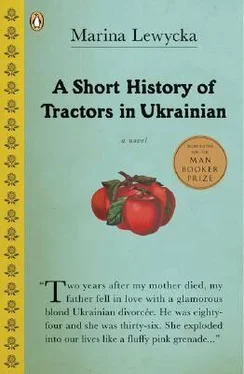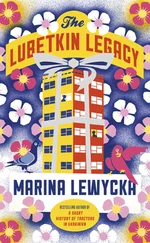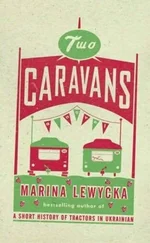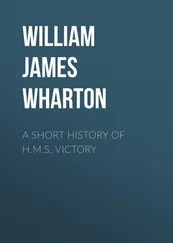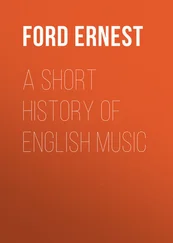Mother said that the purpose of the famine was to break the spirit of the people and force them to accept collectivisation.
Stalin believed that the peasant mentality, which was narrow, covetous and superstitious, would be replaced by a noble, comradely, proletarian spirit. (“What wicked nonsense,” said Mother. “The only spirit was to preserve one’s own life. Eat. Eat. Tomorrow there may be nothing.”)
The peasants ate their cows, chickens and goats, then their cats and dogs; then rats and mice; then there was nothing left to eat but grass. Between seven and ten million people died across Ukraine during the man-made famine of 1932-3.
Sonia Ocheretko was a survivor. She made watery soup from grass and wild sorrel that they gathered from the fields. She dug for roots of horseradish, and tuberous artichokes, and found a few potatoes in the garden. When those ran out they trapped and ate the rats that lived in the thatch of their roof, then the thatch itself, and they chewed on harness leather to quell the hunger pangs. When they were too hungry to sleep, they used to sing:
There is a tall hill, and beneath it a meadow,
A green meadow, so abundant
You would think you were in paradise.
In the next village, there was a woman who had eaten her baby. She had gone mad, and wandered through the lanes crying, “But she died first. She was dead. What harm to eat? So plump! Why waste? I didn’t kill! No! No! No! She died first.”
They were saved by the remoteness of their khutor- if anyone thought about them at all, they probably thought they were already dead. In 1933 they somehow obtained a travel permit and made the long journey to Luhansk, soon to be renamed Voroshilovgrad, where Sonia’s sister Shura lived.
Shura was a doctor, six years older than Sonia. She had a dry sense of humour, dyed red hair, a taste for extravagant hats, a rattling laugh (she smoked hand-rolled cigarettes made with home-grown tobacco) and an elderly husband-a Party member and a friend of Marshal Voroshilov-who could pull strings. They lived in an old-fashioned wooden house on the edge of town, with carved eaves, blue-painted shutters, and sunflowers and tobacco plants in the garden. Shura had no children of her own, and fussed over Sonia’s. When Sonia found a teaching job and moved into a small flat in town with the two younger children, Ludmilla stayed with Aunty Shura. Aunty Shura’s husband found her a job in the locomotive factory in Luhansk, where she was to be trained as a crane operator. Ludmilla was reluctant. What did she want with cranes?
“Do it, do it,” urged Aunty Shura. “You will become a proletarian.”
At first, mastery of those mighty machines that swung and turned at her command was thrilling. Then it became routine. Then deadly boring. She dreamed once more of becoming a vet. Animals smelled of life, and were warm to the touch, more exciting to handle and subdue than a mere machine that could be operated with levers. (“What a poor thing is the crane or the tractor compared to a horse, Nadia!”) Veterinary surgeons at that time worked only with big animals-animals that had value-cows, bulls, horses. (“Just imagine, Nadia, these English people will spend one hundred pound to save the life of a cat or dog that can be pick up in street for nothing. Such foolish kind hearts!”)
She wrote to the Institute in Kiev, and was sent a bundle of forms to fill in, asking her to detail her and her parents’ and her grandparents’ occupations-their position in the class structure. Only those from the working class were to study at university now. She sent the forms off with a heavy heart, and was not surprised to hear nothing. She was twenty-three, and it seemed as though her life had reached a dead end. Then a letter came from that strange boy she had been at school with.
Weddings, like funerals, provide the perfect arena for family drama: there are the rituals, symbolic costumes, and every opportunity for snobbery in its many guises. According to Vera, my father’s family disapproved of the Ocheretkos. The girl, Ludmilla, was pretty enough, said Baba Nadia, but rather wild; and it was unfortunate, to say the least, that her father was an ‘enemy of the people’.
Baba Sonia, for her part, found my father’s family pretentious and peculiar. The Mayevskyjs were part of the small Ukrainian intelligentsia. Grandfather Mayevskyj, Nikolai’s father, was a very tall man with flowing white hair and little half-glasses. In the brief flowering of Ukrainian independence in 1918 he was even Minister for Education for six months. After Stalin came to power and all ideas of Ukrainian autonomy were stamped out, he became the head teacher of the Ukrainian language school in Kiev, operating on voluntary subscription and under constant pressure from the authorities.
It was at this school that my mother and father first met. They were in the same form. Nikolai was always the first boy to put his hand up, always top of the class. Ludmilla thought him an insufferable know-all.
Nikolai Mayevskyj and Ludmilla Ocheretko were married in the register office in Luhansk in the autumn of 1936. They were twenty-four years old. There were no golden domes or bells or flowers. The ceremony was conducted by a plump female party official in a bottle-green suit and a not-very-clean white blouse. The bride was not pregnant and nobody cried, even though there was much more to cry about.
Did they love each other?
No, says Vera, she married him because she needed a way out.
Yes, says my father, she was the loveliest woman I had met, and the most spirited. You should see her dark eyes when she was in a rage. On the skating rink she glided like a queen. To see her on horseback was a wonder.
Whether they loved each other or not, they stayed together for sixty years.
“So, Pappa, what do you remember about Ludmilla? Tell me, what was she like when you first met?” (I am attempting some reminiscence therapy. I somehow hope that filling his mind with images of my mother will blot out the interloper.) “Was it love at first sight? Was she very beautiful?”
“Yes, indeed. Quite beautiful in every way. But of course not as beautiful as Valentina.”
There he sits with a small secret smile on his face, wisps of silver hair straggling on to his frayed collar, his spectacles repaired with brown parcel tape balanced on the end of his nose so that I can’t quite see his eyes, his hands swollen with arthritis cradling a mug of tea. I want to grab it from him and dash it in his face. But I realise that he has no idea, no idea at all, of the effect his words might have on me.
“Did you love her?” (I mean did he love her more .)
“Ah, love! What thing is love! No one can understand. On this point, science must concede to poetry.”
My father doesn’t invite us to the wedding, but he lets slip the date. “No need to visit now. Everything is OK. You can come after June first,” he says.
“We’ve got four weeks to stop her,” says my sister.
But I hesitate. I am touched by his joy, his new vitality. Also, I am mindful of Mike’s opinion.
“Maybe it’ll be OK. Maybe she’ll look after him, and make him happy in his last years. It’s better than going into a home.”
“For goodness’ sake, Nadia. You don’t think that kind of woman will be around when he’s old and dribbling and incontinent. She’ll take what she can, and be off.”
“But let’s face it, neither you nor I are going to look after him in his old age, are we?” (Best to get it out into the open, even though the bluntness of it smarts.)
“I did what I could for Mother. Towards Father I feel a sense of obligation: nothing more.”
“He isn’t so easy to love.” I’m not trying to sound accusing, but that’s the way she takes it.
Читать дальше
